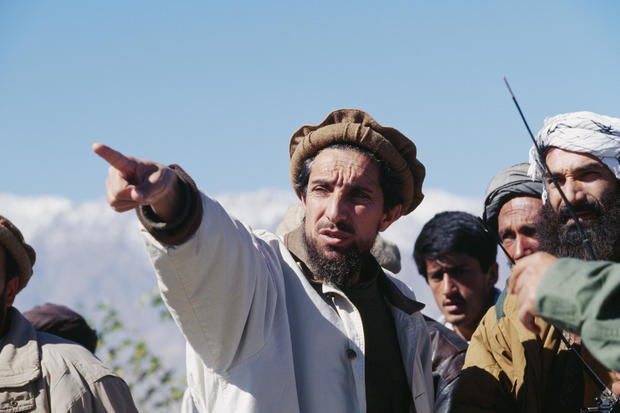[ad_1]
Kabul — The beginning of the withdrawal of U.S. forces from Afghanistan on May 1 triggered a huge surge in Taliban attacks across the country. CBS News correspondent Charlie D’Agata reports that the Burka district in Baghlan Province, north of Kabul, was seized by the Taliban just days ago — the latest ground to fall into the insurgents’ hands.
Afghan forces were seen retreating to safer fighting positions around Burka this week, and the government said commandos had been sent to the region to back up the regular army.
The district fell just a day after Afghan troops had to call in U.S. airstrikes to halt a major Taliban offensive in the southern province of Helmand.
The Afghan government reported more than 100 Taliban attacks across 21 of the country’s 36 provinces in just single day this week.
With the Taliban on the warpath, the Chairman of the Afghan High Council for National Reconciliation, Abdullah Abdullah, told CBS News that the militants had not engaged in negotiations in nine months.
With the withdrawal of U.S. military support, he said it was impossible to predict what the future holds.
“The best case scenario will be serious talks [and a] reduction in violence,” he said. “Worst case scenario, God forbid, will be a complete, all-out war throughout the country.”
Like many, Abdullah said it was a mistake for the U.S. to sideline the Afghan government as it negotiated its withdrawal agreement with the Taliban.
“I hope that their calculus is not based on the promises that the Taliban have made, that they will do against al Qaeda,” he said. “The Taliban have not shown any sign in practice that we know about yet that they have changed their mindset about harboring these terrorist groups.”
“People ready to fight”
The grim prospect of a civil war is something Ahmad Massoud and his followers are preparing for.
“I’ll fight for it, and I’m ready to give my life for it,” he told CBS News. His father gave his life for it: Ahmad Shah Massoud was a renowned guerrilla commander who led the resistance against the Taliban occupation in the 1990’s.
Patrick ROBERT/Sygma/Getty
He was assassinated just two days before September 11, 2001. The Taliban knew the U.S. would retaliate for the terror attacks with everything at its disposal, and Massoud would have been be too dangerous an ally to allow the Americans.
Should the Afghan military collapse, Massoud said he and others were ready to take up arms in what some have already been calling “Resistance 2.0.”
“Armed groups against international terrorism,” he said. “They are ready. If the situation goes towards a war, we will announce it, and we will be ready.”
If that sounds like answering militancy with more militancy, Massoud disagrees.
“It will be people ready to fight,” he said. “It will be an organized resistance against the Taliban.”
REZA/Getty
But he’s hoping it won’t come to that. Massoud blames discord within the current Afghan government for the situation his country is in now. He said the first priority should be to forge unity in Kabul, so the government can present a clear stance to the militants. It will be necessary, if they’re to have any hope of negotiating peace with the Taliban.
“Election and democracy is very important, and we believe in it, my father lost his life for it,” he told CBS News. “Unfortunately democracy by this government has been slaughtered.”
Even if the negotiations — led for the government by Abdullah, who fought alongside Massoud’s own father in the 1990s — do yield results, does he believe the Taliban can be trusted?
Given what he’s seen recently, “absolutely not,” he told D’Agata.
“This is what makes us really worried,” he said. “My father, he went all alone to the military camp of the Taliban in the 90s to make peace with them, but unfortunately he realized they were not after making peace. Chaos and the war were the only things that they were thinking about. Unfortunately, every single time, they use the opportunity for peace for refueling their war machine.”
Massoud returned to Afghanistan in 2016 after attending school in Great Britain and then officially entered politics in 2019. He said he vowed to his father that he would pick up the torch to fight for the freedom of Afghans.
But he said he was not bent on vengeance.
“We were ready to forgive the Taliban and move on,” he told CBS News. “They killed my father. Al Qaeda killed my father.”
Willing to forgive, but ready to fight?
“Yes, absolutely.”
[ad_2]
Source link

